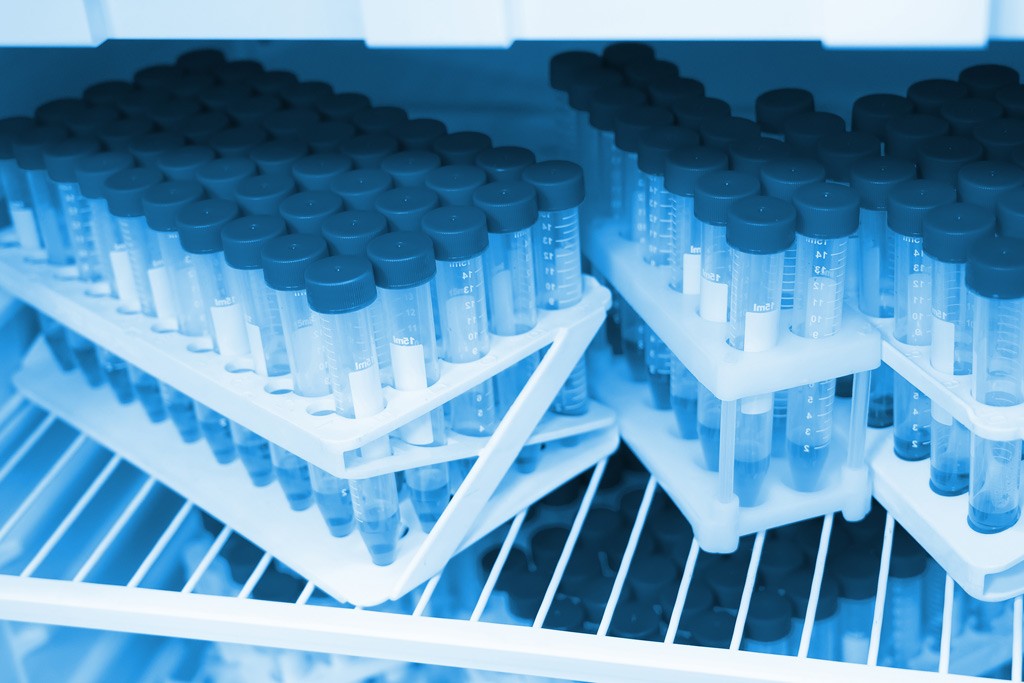Guide to Medication Fridge Temperature & Thermometers

Just like food, certain medicines and vaccines need to be stored at safe fridge temperatures. This can be whether they’re being developed in a laboratory, transported to a hospital or pharmacy, or stored for use at home or in a care home.
If a medicine or vaccine is stored at the wrong temperature, it might become ineffective, expire more quickly, or even become harmful and unsafe. Therefore, maintaining the correct medicine fridge temperature is essential.
Read on to discover what the correct medicine refrigerator temperature is and the best way to monitor it for confidence and safety.
What is the correct medication fridge temperature?
Most medication fridges should be maintained between 2 and 8 °C. This temperature range is usually recommended for storing items such as insulin, antibiotics and eye drops.
However, temperatures may vary slightly depending on the type of medication being stored, as well as the setting, such as pharmacies or hospitals.
Temperature-sensitive medication will usually have its required storage temperature listed in its instructions, but you can always check with your pharmacist or supplier if you’re unsure.
Items stored at room temperature should also always be kept under 25 °C.
How often should you check medication fridge temperature?
Medicine fridge temperatures should typically be checked once or twice daily to ensure they remain within the recommended range. However, more frequent monitoring may be necessary for sensitive medications.
Regulatory bodies and organisational policies may also dictate specific monitoring requirements, such as the EU Good Distribution Practice (GDP) Guidelines and the Medicines and Healthcare Products Regulatory Agency (MHRA).

Which fridge thermometers are best for medicine and vaccine storage?
Most accurate thermometer for medicine refrigerators
ThermaGuard Pharm

High accuracy is often paramount for pharmaceutical monitoring, which is where the ThermaGuard Pharm’s simulant probes come in. Encased in a glycol solution, the sensors are able to mimic the temperature of refrigerated medicines more accurately. Regular fridge thermometers measure air temperature, which is quicker to respond to changes than solutions. This means the ThermaGuard Pharm shows if your product has changed temperature, not the air, for greater accuracy and confidence in your medicine safety.
In addition, the ThermaGuard Pharm has a high accuracy of ±0.4 °C and can be supplied with a 2-point UKAS calibration certificate. It also has a CalCheck function, which enables the user to check the accuracy of the thermometer at any time. With max/min and alarm functions, too, it’s the perfect choice for ensuring accurate measurements of your pharmaceuticals.
Best wireless thermometer for vaccine temperature monitoring
ThermaData Pharm

Wireless monitoring means temperatures are automatically recorded at programmed intervals and transmitted to a device where users can view readings remotely.
The benefit of this is 100% confidence that your products have stayed at a safe temperature at all times. Users can even receive email alerts and push notifications for readings outside of their set parameters, enabling them to take corrective actions quickly and prevent costly damages.
In addition, for applications where fridge temperatures need to be recorded several times a day, automating the process will save huge amounts of time.
The ThermaData Pharm is the perfect choice for wireless medicine fridge monitoring. It features the same glycol-encased probes as the ThermaGuard Pharm, allowing users to see readings that are more reflective of their product temperature. Furthermore, it comes with user-friendly software that is completely free to download and has no ongoing subscription costs.
Best budget thermometer for medicine storage
Digital Fridge Freezer Thermometer

For applications where high accuracy or wireless monitoring isn’t required, a reliable fridge/freezer thermometer will work perfectly.
The Digital Fridge Freezer Thermometer is ideal for medicines. It sits on the outside of the fridge and displays the fridge and room temperature simultaneously. This means you can easily check that both refrigerated and ambient medicines are stored safely.
More than a basic fridge thermometer, this digital thermometer also features some handy functions for keeping your medicines in check. This includes a programmable high/low alarm that will sound if it reads a temperature outside of your set limits. It also has a max/min function for checking the highest and lowest measurements over a period of time, giving a more accurate idea of your storage temperatures overall.
Shop the Digital Fridge Freezer thermometer
Summary
Maintaining the correct temperature in medication fridges is crucial to ensure the safety and effectiveness of medicines and vaccines. Most medications should be stored between 2 and 8°C, but specific requirements may vary. Regular temperature checks, typically once or twice daily, are essential.
Choosing the right thermometer is vital for accurate monitoring. The ThermaGuard Pharm offers high accuracy and simulant probes for pharmaceutical monitoring, while the ThermaData Pharm provides wireless monitoring for added convenience. For a budget-friendly choice, the ETI Digital Fridge Freezer Thermometer is reliable and includes some useful features for keeping medicines stored safely.
The method of your temperature monitoring will depend on the type of product you are storing and the setting, as this will determine the level of accuracy and security you require.
You might also like:
A Guide to Fridge Temperatures & Fridge Thermometers
5 Benefits of Remote Temperature Monitoring for Business
Best Thermometers for Cold Chain Storage & Transportation